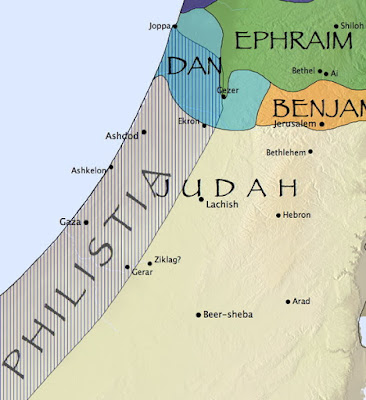Your post, above, refers to periods after the early 1st century. Obviously you are trying to explain that the Kingdom of Herod was not called Palestine, but you haven't offered any other name.
I notice in the post below yours that a member is proposing that the name Palestine existed in 500BC.
Is this a political issue for you, or an historical one?
I notice that in your bpost to another member that you felt that although maybe priests outside of Judea might have become Hellenised, that the main priesthood had remained firm in their believe in their G-d Jehovah? Or something like that?
This cannot be correct. The Temple was filled with graven images, and images of Melgarth Heracles (Baal) and every man who entered the Temple had to handle both because these images were struck on to the Temple coinage, the half and full shekels.
The Priesthood was accused by the Baptist of being a bunch of vipers, and he was short-circuiting funds to the Temple by redeeming sins of all and any who passed by for free, thus cutting out the services of the Jerusalem locals (no wonder they greeted the visitors with palm fronds and flowers!) and the whole Temple money-go-round. Hence Antipas was instructed to send out for his arrest.
The priesthood didn't care about the invader's insults as long as they were ok, and if there is a word for quisling in Hebrew, than the Baptist was no doubt applying it.
Jesus also called for 'Mercy and not Sacrifice'
Ergo........ as can happen in any lands or cultures, the leaders (at that time) had become corrupted.

